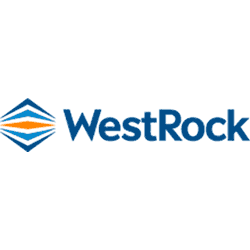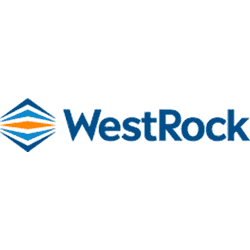Bulk onions account for the vast majority of onion sales in the U.S., but consumer packs continue to gain popularity.
Some suppliers attribute at least some of the increased movement of packaged product to a change in consumers' buying habits during the pandemic, when some shoppers preferred to pick up prepackaged produce rather than selecting individual fruits and vegetables that may have been handled by other consumers.
“Consumer bags for us exploded when COVID came around,” said Jeff Brechler, salesman for Little Bear Produce, Edinburg, Texas.
The company offers 3- and 5-pound consumer bags.
“That side of the business has grown for us,” Brechler said.
There was a time when consumer packs accounted for only about 5% of the company's onion sales. Now it's in the 20% to 30% range.
“Some customers are almost 50-50, where they'll order half a load of bulk and half a load of consumer packs,” Brechler said.
Brechler said he prefers the medium-size onions in a consumer pack because they are recipe-friendly and result in less waste. There's a benefit to the retailer, too, since shoppers will likely pick up more onions when they buy a consumer pack compared to buying onions individually.
“There is definitely the [upsell],” he said. “If I were retailer, I would put everything in a consumer bag.”
Idaho Falls, Idaho-based Eagle Eye Produce also saw a jump in sales of consumer packs during the pandemic, said Joe Ange, director of business development. About 20% of the firm's onion sales now are 2-, 3- or 5-pound consumer packs.
Another factor contributing to the sales boost during the pandemic was the drop in foodservice sales and an uptick in retail business, he said. Foodservice customers typically order cartons of onions, while consumer pack sales are greater at supermarkets.
Eagle Eye has put a strong focus on growing its retail business and has built an infrastructure to produce retail packs, Ange said.
“Our retail business has grown because of our focus [on consumer packs],” he said.
At Wada Farms Marketing Group, Idaho Falls, Idaho, bulk accounts for 70% of the company's onion sales, and packages account for 30%, said John Vlahandreas, national onion sales director. The volume of consumer packs has been increasing every year in the 30 years he has been in the business, he said.
“It's easier to grab a bag of onions than it is to pick a few,” he said.
Related news: Onion volume expected to increase after slow start
But unlike some onion sellers, Vlahandreas said he did not notice a significant change in demand for consumer packs as a result of COVID-19, other than the number of packaged onions that were used for government food boxes. That's because consumers probably weren't as concerned about the safety of root items as they were some other fruits or vegetables, since they wash root vegetables carefully anyway, he said.
“There may have been a bit of an uptick in the beginning [of the pandemic], but that disappeared quickly,” he said.
Consumer packs are a good deal for shoppers, said Josh Frederick, CEO at Snake River Produce, Nyssa, Ore.
“There is less waste for the consumer when you can come in and buy a 3-pound bag of onions, and it lasts the average household a week,” he said.
The company offers 3-, 5- and 10-pound consumer packs as well as 25- and 50-pound cartons and sacks, and 2,000- and 3,000-pound poly totes.
Brechler said there's a misconception that consumer bags of onions should be discounted.
“It is a value-added item,” he said. “We are adding value to that package, and those little bags cost money.”
It costs more to produce a box of 12 3-pound bags than a 40-pount carton of onions, he said.
Bags with bar codes also can save money at retail because they reduce mis-rings that might occur if a premium onion is misidentified as a cheaper one at checkout, he said.

(Photo: Pixabay)
At a time when consumer and retailers are clamoring for sustainable, recyclable packaging, suppliers are doing their best to comply with their requests.
Eagle Eye Produce uses recyclable cardboard cartons as well as reusable or compostable containers, Ange said.
So far, the company has not come up with recyclable bags for consumer packs of onions, “but it is something that is on our radar, and it is something that we are looking to convert to in the future,” he said.
Producing sustainable packaging can be expensive and challenging in that sustainable packs may look good on the shelf but may not hold up under day-to-day use, said Vlahandreas of Wada Farms.
“Sometimes, there's no easy way around packing a certain product,” he said.
Nonetheless, “I think in the onion industry, we do a pretty good job of trying to be as sustainable as possible,” he said.
Wada Farms has a good sustainability program, Vlahandreas added.
“We're not here to hurt the earth,” he said. “Anything we can to do is help is what we're going to try to do.”
Related news: G&R Farms launches cookbook, partners with American Cornhole Organization
The company constantly works on ideas that are “going to be good for us, the shipper, and be good for the consumer and good for the planet,” Vlahandreas said.
Greg Yielding, chief executive for the National Onion Association, Eaton, Colo., agreed.
“All these things considered sustainable issues are thing farmers do anyway,” he said. “They want to save money by saving water, saving electricity for pumping water and using fewer pesticides, herbicides and fertilizers.”
“They don't want to run up a big bill, and they want to protect their land,” he continued.
Sustainability comes naturally for grower-shippers, who have implemented growing practices like crop rotation, planting cover crops and conserving water since they started farming, Brechler said.
“Those are things you just do,” he said.
On the retail side, though, he said there's one stumbling block supermarket chains have introduced that might be counter to their stated sustainability goals — private label brands.
With the pressure for private label, retailers are increasing suppliers' inventories, he said.
If grower-shippers service three retailers who each want private labels, the shippers must add to the inventory they need for packaging materials, boxes, labels and so forth, he said.
“They're really not helping their own cause by pushing the private label avenue,” Brechler said.
The practice may put more trucks on the road and require different labels, different types of containers and additional inventory for each retailer, he said.
















